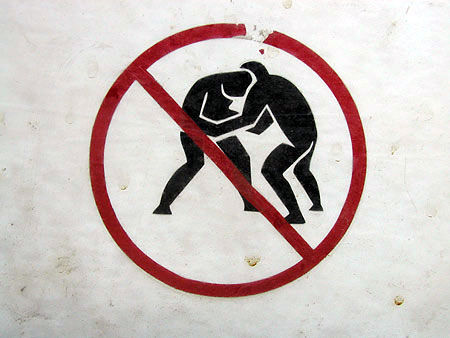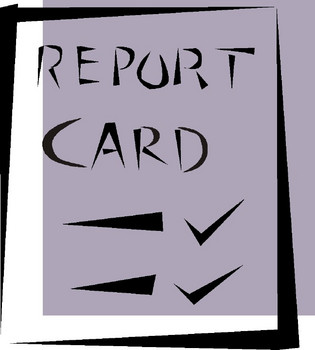 In a previous post, when I was commenting on liking WWE Tough Enough, I had this to say: “I’m always interested in a program like [Tough Enough] to see how much they reveal about the wrestling business. It turns out not a lot, but enough to hold my interest and give me a little more wiggle room in what I write about on this site (more on that in a later post).” This is the “later post” I was referring to.
In a previous post, when I was commenting on liking WWE Tough Enough, I had this to say: “I’m always interested in a program like [Tough Enough] to see how much they reveal about the wrestling business. It turns out not a lot, but enough to hold my interest and give me a little more wiggle room in what I write about on this site (more on that in a later post).” This is the “later post” I was referring to.
When I started wrestling training, I entered into a non-verbal agreement to “protect” the business- meaning to not reveal the inner-workings of the business to anyone that is not part of the club. Friends, family, reporters, etc. (Actually, I can’ t call it a non-verbal agreement since Billy Blaze threatened to break my arm if I ever said anything about it).
For those in the corporate world, you can think of this vow of confidentiality as a Non Disclosure Agreement, or NDA. An NDA is a legal document between two parties that prohibits them from disclosing certain privileged information to another party. They can talk freely between each other without worrying that the information would be revealed to someone else.
However, in an NDA if any of this privileged information becomes publicly known through some other means, then either party can choose to freely talk about it without violating the terms of the agreement.
My take of how this applies to me and pro wrestling is that if some major promotion (WWE, TNA, New Japan, etc.) decides to publicly reveal something about the business, then it is fair game for me to talk about it without feeling that I’m “pulling back the curtain” too much.
So how public is public? Does it have to be on their own programming, web site, or press release, or is it anything that makes it into the public domain, even if it is “leaked”? In my case, the short answer is that “it depends”.
As an example, I rarely if ever make any references to whether the outcomes of the matches are “real” or “predetermined”. It’s probably one of the most asked questions, but I still don’t feel comfortable answering that question in a public forum.
However, Vince McMahon answered this question for me all the way back in 1989 in order to save his company a few bucks. I remember it being national news at the time, and a short account of it can be found in this excerpt of the book Ringside: a history of professional wrestling in America:
Since the establishment of state athletic commissions in the early twentieth century, boxers, wrestlers, and their promoters found themselves required to pay state licensing fees as part of doing business. In 1989, [Vince] McMahon decided that he would move to avoid paying these fees. In a meeting with the New Jersey Athletic Commission, WWF representatives admitted that their matches did not represent legitimate athletic contests because the victors were predetermined. McMahon announced that his product could not be considered a sport, and therefore should not be licensed, because the WWF merely offered “sports entertainment.”
I started professional wrestling in 1997, eight years after this revelation, so you would think that would mean I would be free to talk about it. But it just doesn’t feel right. It feels like I would somehow be dishonoring the decades of professional wrestlers who came before me and spent their lives making it seem believable.
The right answer for questions like, “Is it real?” is “it doesn’t matter”. Did they make you believe it? If they made you believe it, then the answer to whether it was “real” or not doesn’t matter. To you it was real. If you knew the answer, would it make you enjoy it more? Or would it be a letdown?
I read a blog post from a New York state newspaper the other day where the author said, “…and yes I know that the matches are predetermined 98.3% of the time…“. So here’s a guy that is somewhat of a “smart” fan who knows some amount of information about the inner workings of the wrestling business, and yet even he is convinced that nearly two percent of the wrestling matches he’s seen were not predetermined. Despite what he knows, the wrestlers involved in two percent of the matches were able to convince him that it was real. Why would I tell him that it wasn’t?
Some of the information that fans think they want to know would cause them to be disappointed if they got a definitive answer. Those things I most likely won’t discuss here. For other things that have already been revealed by someone else (e.g. a major wrestling promotion), I will freely talk about it if it helps the message or story I’m trying to tell without worrying too much about what those in the business might think.
Although I still might get my arm broken.




Recent Comments